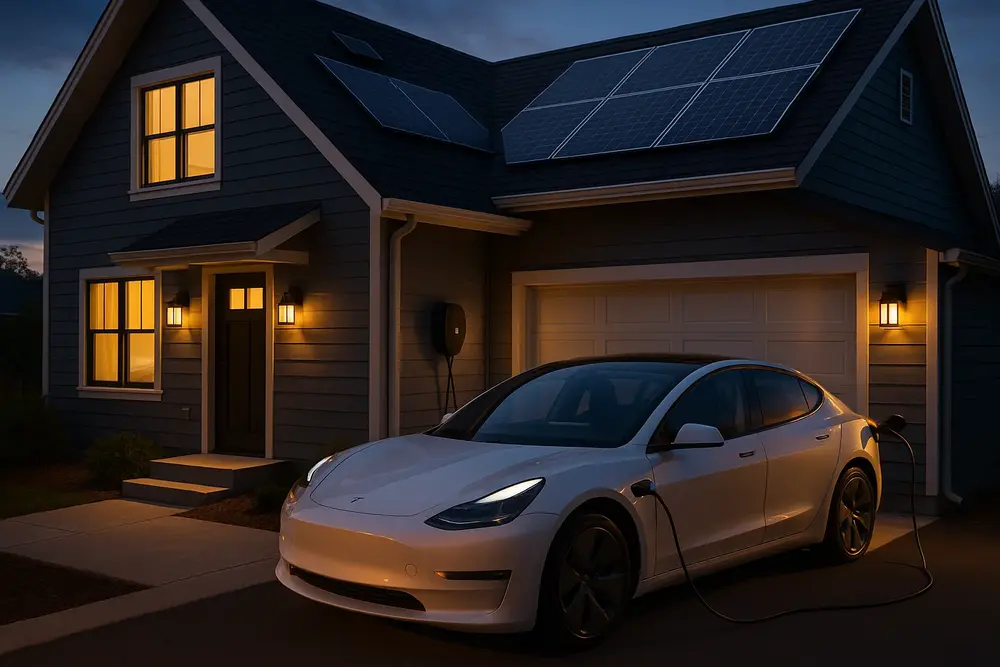Understanding EV Charging Costs: A Practical Guide for New Electric Car Owners
Switching to an electric vehicle (EV) is no longer a distant dream—it’s an accessible, smart, and eco-friendly option embraced by drivers across the UK and beyond. But for many new EV owners, one of the most common questions remains: How much does it actually cost to charge an electric car?

In this guide, we’ll walk you through how to calculate EV charging costs in a simple, step-by-step way. From battery size to charging methods and electricity rates, you’ll gain a clear picture of your potential savings and how to budget for EV ownership.
Start with the Basics: Battery Size Matters
One of the first steps in calculating EV charging costs is to understand your vehicle’s battery capacity, which is measured in kilowatt-hours (kWh). Think of kWh as the “fuel tank” of your electric car—the more kWh, the more energy it can store, and the farther it can travel on a full charge.
Battery sizes vary significantly by model. For instance:
| EV Model | Battery Size (kWh) | Estimated Range (Miles) |
|---|---|---|
| Renault Twizy | 13 kWh | ~62 |
| Nissan Leaf | 40 kWh | ~150 |
| Hyundai Kona EV | 64 kWh | ~300 |
| Tesla Model Y | 75 kWh | ~330 |
You can usually find the battery size in the car manual, manufacturer website, or by searching online.
Types of EV Charging and Their Impact on Costs
How and where you charge your EV significantly affects the total cost. Let’s explore the three primary charging options available:
Home Charging
Charging your electric vehicle at home is the most convenient and cost-effective method. To calculate how much it will cost you to charge your EV at home, use this formula:
Battery Size (kWh) × Cost per kWh from your supplier = Total Charging Cost
Example:
- Electricity Rate: £0.15 per kWh
- Battery Size: 64 kWh (Hyundai Kona)
64 × £0.15 = £9.60 for a full charge
Depending on your electricity provider, you might have access to variable tariffs like:
- Flat Rate (24 hours): Fixed rate, all-day
- Day & Night Tariffs: Cheaper rates at night (Economy 7, etc.)
- Smart Tariffs: Time-of-use pricing optimized for EV owners
You can save even more by charging during off-peak hours, often late at night or early morning.
Public Charging Points
There are over 33,000 public charging stations across the UK, but the pricing can vary widely.
| Public Charging Type | Typical Cost | Notes |
|---|---|---|
| Free Charging | £0 | Often found at shopping centres or supermarkets |
| Standard AC Charging | £0.25–£0.40/kWh | May require app or membership |
| DC Fast Charging | £0.45–£0.70/kWh | Quicker but more expensive |
You might need an RFID card, a mobile app, or a monthly subscription. Some networks offer pay-as-you-go options, while others require account registration.
Rapid Charging Stations
For those long-distance journeys or urgent situations, rapid DC chargers (typically 50kW and above) can top up your battery in under an hour. However, the convenience comes at a cost.
- Estimated Price: £10–£15 per session
- Charging Speed: 80% charge in 30–45 minutes for most EVs
- Use Case: Motorway stops, taxi drivers, fleet users
While fast and useful, relying heavily on rapid charging will significantly increase your running costs.
Quick EV Charging Cost Comparison
| Charging Type | Approx. Cost per Full Charge | Time Required | Best For |
|---|---|---|---|
| Home Charging | £2–£15 | 4–10 hours (AC) | Daily use, overnight charging |
| Public Charging | £5–£20 | 1–6 hours | Errands, work, city driving |
| Rapid Charging | £10–£25 | 20–60 mins | Long trips, emergencies |
Example Cost Calculations (Based on UK Average Rate of £0.15/kWh)
| EV Model | Battery Size | Full Charge Cost | Est. Cost per Mile* |
|---|---|---|---|
| Renault Twizy | 13 kWh | £1.95 | ~£0.03 |
| Nissan Leaf | 40 kWh | £6.00 | ~£0.04 |
| Tesla Model 3 | 75 kWh | £11.25 | ~£0.034 |
*Based on typical driving range and energy efficiency
Environmental and Financial Benefits
Not only does switching to EVs lower your emissions, but it also helps you save money long-term:
- Zero Road Tax (for many EVs)
- Congestion Charge Exemptions (e.g., London ULEZ)
- Lower Maintenance Costs (fewer moving parts)
- Government Grants for home charger installations
Tips to Lower EV Charging Costs Further
Use Off-Peak Tariffs
Choose energy plans tailored for EVs with cheaper night-time rates.
Install Solar Panels
Pair your EV charger with solar panels to reduce dependency on the grid.
Track Usage with Apps
Use apps like Zap-Map, Octopus, or your car’s built-in tools to monitor and optimize charging.
FAQs About EV Charging Costs
Q1: Is charging an electric car cheaper than fueling a petrol car?
Yes. On average, running an EV costs between 2–4p per mile, while petrol cars can cost 10–15p per mile depending on fuel prices.
Q2: How long does it take to charge an EV at home?
It depends on your charger. A 7.4kW home charger takes about 6–8 hours for a full charge, while a 3-pin plug can take 12+ hours.
Q3: Do public charging stations cost more?
Usually, yes. Public and rapid charging can be up to 2x or 3x more expensive than home charging per kWh.
Conclusion: Take Control of Your EV Charging Costs
Whether you’re a first-time EV buyer or considering switching from petrol, understanding your charging cost is crucial to making the most of your electric car investment. By calculating EV charging costs based on battery size, energy rate, and charging method, you can confidently plan your monthly budget.
For the best long-term savings and convenience, installing a home EV charger is the top recommendation. Want to learn more? Reach out to certified EV charger suppliers or explore smart tariff providers to start saving today.

